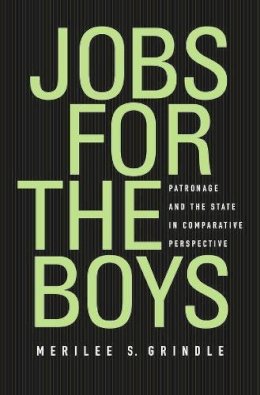
Jobs for the Boys
Merilee S. Grindle
Patronage systems in the public service are universally reviled as undemocratic and corrupt. Yet patronage was the prevailing method of staffing government for centuries, and in some countries it still is. In Jobs for the Boys, Merilee Grindle considers why patronage has been so ubiquitous in history and explores the political processes through which it is replaced by merit-based civil service systems. Such reforms are consistently resisted, she finds, because patronage systems, though capricious, offer political executives flexibility to achieve a wide variety of objectives.
Grindle looks at the histories of public sector reform in six developed countries and compares them with contemporary struggles for reform in four Latin American countries. A historical, case-based approach allows her to take into account contextual differences between countries as well as to identify cycles that govern reform across the board. As a rule, she finds, transition to merit-based systems involves years and sometimes decades of conflict and compromise with supporters of patronage, as new systems of public service are politically constructed. Becoming aware of the limitations of public sector reform, Grindle hopes, will temper expectations for institutional change now being undertaken.
Product Details
About Merilee S. Grindle
Reviews for Jobs for the Boys
J. A. Rhodes
Choice
An outstanding book, highly original in its creation of a new interface between the historical-institutional literature on now-‘developed’ countries and the almost completely separate world of the development literature.
Judith Tendler, Massachusetts Institute of Technology One of the book’s most original arguments is that there are drawbacks to professionalizing the bureaucracy. A stable, rule-bound administration may compromise flexibility for rulers, and even degrees of loyalty, both of which are arguably necessary for good governance. The book offers a counterargument to those scholars who, following Weber, believe that maximizing meritocracy is an unmitigated gift.
Javier Corrales, Amherst College
